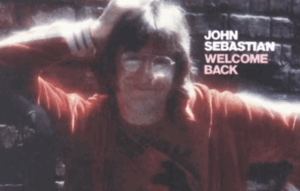There was something special about television in the 1970s. It was a time when laughter came from living rooms, not algorithms, and when the heart of a show often beat through its theme song. Sitcoms didn’t just fill airtime—they became cultural landmarks that defined the rhythm of daily life. Families gathered after dinner to watch characters who felt like neighbors, friends, or even family.
But what many people forget is how deeply connected music was to those shows. The best sitcoms didn’t just have funny scripts—they had songs that climbed the charts and echoed on car radios long after the credits rolled. These weren’t just TV jingles; they were full-fledged hits that captured the warmth, humor, and optimism of the era.
1976, in particular, was a golden moment when television and pop music briefly danced in step. A handful of theme songs from beloved sitcoms became unlikely radio favorites, turning casual viewers into devoted listeners. Here’s a look at three of those forgotten gems that once brought the magic of the small screen to the airwaves—and still have the power to transport you right back to that cozy, laugh-filled decade.
“Happy Days” by Pratt & McClain
Few TV theme songs have captured pure joy the way “Happy Days” did. Performed by Pratt & McClain, the song was more than just an opening tune—it was an instant invitation to nostalgia. Bursting with upbeat harmonies and a sense of youthful innocence, it reminded viewers of sock hops, jukeboxes, and the simple thrill of cruising down Main Street on a Friday night.
The show it represented, Happy Days, wasn’t just a hit—it became a cultural monument. Centered on Richie Cunningham, his family, and the effortlessly cool Fonzie, the sitcom painted an affectionate portrait of 1950s America that resonated deeply with audiences. Its mix of wholesome humor and universal coming-of-age stories kept viewers tuning in long after its debut.
When the song climbed to No. 5 on the Billboard Hot 100 in 1976, it marked one of those rare moments when television and radio collided. Fans didn’t just hum along during the opening credits—they bought the record and played it endlessly. Even decades later, hearing “Sunday, Monday, Happy Days” can instantly bring back the glow of tube-lit living rooms and the comforting rhythm of a simpler time.
“Making Our Dreams Come True” by Cyndi Grecco
When Laverne & Shirley spun off from Happy Days, it didn’t just bring new characters to the screen—it brought along one of the most uplifting theme songs of the decade. Cyndi Grecco’s “Making Our Dreams Come True” carried the same kind of energy and optimism that defined the show’s blue-collar heroines. It was the sound of determination, laughter, and a little bit of chaos all rolled into one.
The track’s blend of pop and soft rock captured the spirit of two best friends navigating the ups and downs of life in Milwaukee. Its hopeful refrain—“We’re gonna make our dreams come true”—felt tailor-made for a generation of working women chasing independence and opportunity. It wasn’t just a catchy tune; it was an anthem for resilience and friendship.
Climbing to No. 25 on the Billboard Hot 100, “Making Our Dreams Come True” proved that a sitcom song could hold its own on the charts. It’s a reminder that music from the small screen once had big ambitions—and that even a theme song could inspire people to believe that, with enough heart and hustle, anything was possible.
“Welcome Back” by John Sebastian
In 1976, John Sebastian—best known from The Lovin’ Spoonful—struck gold with “Welcome Back,” the gentle, folksy theme to Welcome Back, Kotter. The song’s mellow groove and warm lyrics perfectly fit the show’s story of a teacher returning to his old Brooklyn high school to mentor a group of lovable misfits known as the “Sweathogs.”
Unlike many TV themes of its time, “Welcome Back” felt deeply personal. It wasn’t just an intro; it was a love letter to familiarity, change, and coming home. Its wistful melody gave the sitcom a sense of heart, grounding the humor in something authentic and relatable. That emotional honesty helped the song connect far beyond TV screens.
When “Welcome Back” soared to No. 1 on the Billboard Hot 100, it cemented Sebastian’s unexpected comeback and the show’s place in pop culture. It also introduced audiences to a young John Travolta—setting the stage for his rise to superstardom. Decades later, “Welcome Back” still feels like a warm handshake from the past, welcoming listeners home to the golden age of sitcoms.
